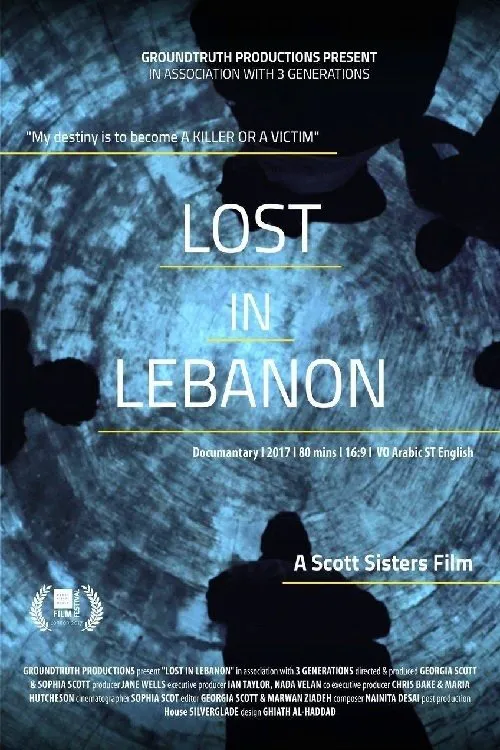Lost in Lebanon

Plot
In the heart-wrenching drama Lost in Lebanon, four Syrians brave the harsh realities of war and relocation, fighting to rebuild their lives in a foreign land. Amidst the devastation of the Syrian conflict, the film sheds light on the resilience of the Syrian community in Lebanon, a group that now makes up approximately one-fifth of the population. We meet our four main characters: Fadi, a former university student driven by a passion for education; Ghada, a young mother determined to provide for her family; Ahmed, a former teacher turned taxi driver, navigating the complexities of Lebanon's visa laws; and Raghda, a determined young woman who has lost her job and is facing a desperate struggle to support herself. Each of these characters exemplifies the extraordinary strength and resourcefulness of Syrian refugees, who are fighting not only for survival but also for a new beginning in a land that has opened its doors to them. As we delve into the lives of these characters, the film expertly conveys the sense of loss and longing that accompanies their decision to leave behind the familiar and the comfort of home. We see Fadi, who once dreamed of studying abroad, now working two jobs to make ends meet. Ghada's determination to provide for her family is put to the test as she navigates the complexities of the local education system. Ahmed, once a respected teacher, finds himself struggling to make a living as a taxi driver, constantly worried about the consequences of deportation. Raghda, meanwhile, faces the daunting task of rebuilding her life from scratch, her sense of identity and purpose shaken by the loss of her job and the uncertainty of her future. Through the lens of these characters, the film beautifully captures the sense of community and solidarity that underlies the Syrian refugee experience. Despite the trauma of their past and the uncertainty of their future, our characters are driven by a deep desire to support one another. We see them sharing resources, advocating for their rights, and working together to overcome the numerous obstacles that stand in their way. One of the most striking aspects of Lost in Lebanon is its exploration of the Lebanese government's visa laws, which have had a devastating impact on the Syrian refugee community. As the numbers of displaced refugees continue to grow, the Lebanese government has implemented new laws that put countless families at risk of arrest, detention, and deportation. These laws have effectively rendered millions of refugees, including our characters, "lost in Lebanon," caught in a cycle of uncertainty and fear. The film does not shy away from shedding light on the harsh realities of these policies, but instead, it encourages the viewer to focus on the individuals behind the statistics. By humanizing the Syrian refugee experience, Lost in Lebanon invites us to see beyond the numbers and to confront the moral complexities of refugee policy. We are forced to confront questions of identity, community, and citizenship, and to consider the human cost of border control and the impact of visa laws on families and individuals. As the story unfolds, we witness the resilience of our characters as they fight to rebuild their lives in the face of seemingly insurmountable odds. We see them find joy in the simplest things – a beautiful sunset, a good cup of coffee, or a warm smile from a friend. And we witness their determination to hold on to their identity, their culture, and their sense of purpose, even in the midst of uncertainty. In the end, Lost in Lebanon is a powerful testament to the strength and resilience of the human spirit. It is a moving tribute to the Syrian community in Lebanon, who are fighting to rebuild their lives in a land that has welcomed them with open arms. And it is a poignant reminder of the importance of empathy, compassion, and solidarity in the face of displacement and persecution.
Reviews
Recommendations


